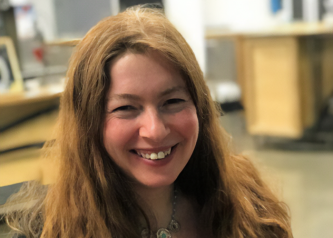

Professor of Modern Middle Eastern History, Department of Near Eastern Languages and CivilizationsDirector, Center for Middle Eastern Studies
Orit Bashkin is a historian who works on the intellectual, social, and cultural history of the modern Middle East. She has been a faculty member at the University of Chicago since her graduation in 2005, publishing on Iraqi history, the history of Iraqi Jews, the Arab cultural revival movement (the nahda) in the late 19th century, and the connections between modern Arab history and Arabic literature. Her current research project explores the lives of Iraqi Jews in Israel.
Orit also leads the Center for Middle Eastern Studies, an interdisciplinary unit that helps to plan degree programs for students studying the Middle East, brings visiting scholars to the University, and serves as a forum for all issues relating to the Middle East. CMES recently received a new endowment from the Assyrian Universal Alliance Foundation (AUAF) and other members of the Assyrian community, which funded a lecture series titled “Reclaiming Lost Paths: The Assyrian Community in Modern Times.”
Q: Why is international collaboration important in your field?
A: The Middle East is where our archives are, where scholars produced incredible academic works about Arab culture and history and Islam and where archivists, artists, intellectuals, poets, journalists and novelists each show great interest in the ways in which we can interpret the region’s past. As historians, working with people whose life today is still shaped by events we study underscores the importance of what we do.
Q: How has your work with international partners been beneficial to you and your career, personally?
A: Working with Arabs and Jews of Middle Eastern descent, reading their private papers, and exploring with them their family histories, changes my perspective on my research and the research questions I ask. A case in point: I once gave a talk in Jerusalem about Jews who survived sectarian riots in Baghdad in June 1941 known as the Farhud, and where a Jewish baby was saved by his Shiite neighbors. Somebody then shouted: the baby is in the audience. He rose and said his name.